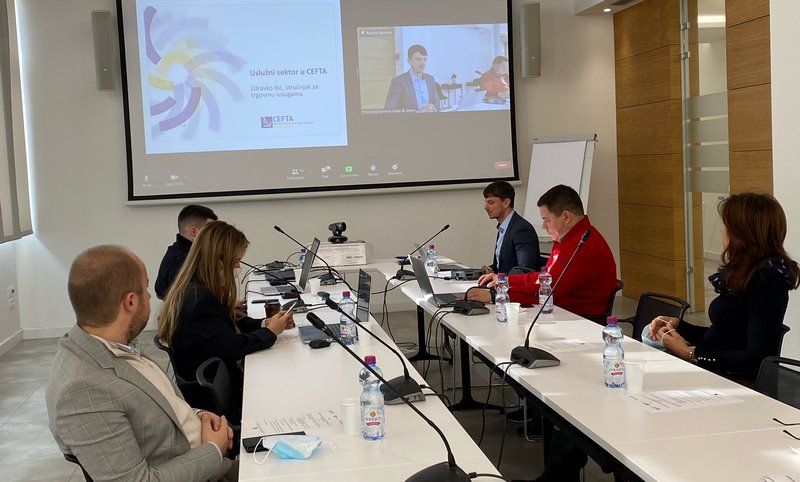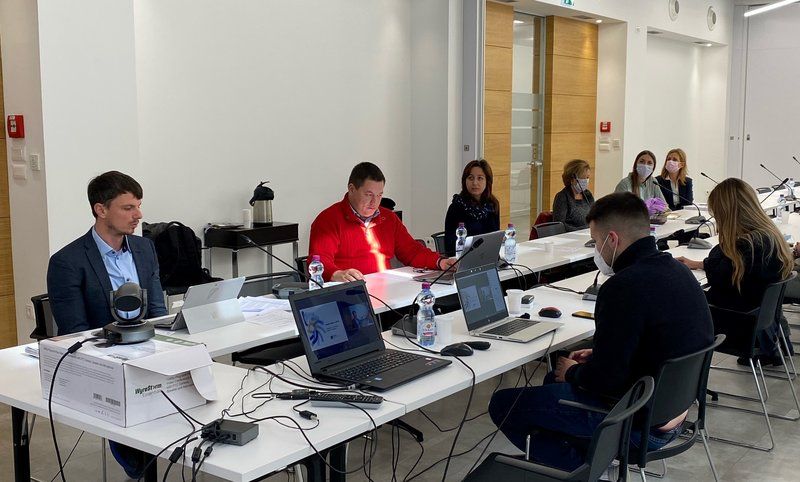
Trade of Services in WB6 – What does CEFTA Additional Protocol 6 on Trade in Services Foresee
More than 50 participants have joined the Workshop that has been organized by the WB6 CIF, Chamber of Commerce and Industry of Serbia and CEFTA in order to disseminate information about the progress in liberalization of services markets in CEFTA region. It is implemented as part of WB6 CIF efforts to reach out to businesses, SMEs in particular, with information that can help them either engage in cross-border business or improve their existing business experience while doing business in WB6.
CEFTA Additional Protocol 6 (AP6) on Trade in Services was adopted in 2019 and entered into force on 11 January 2021. This document extended the principle of free trade within CEFTA to the service sector. AP6 provides a framework for the removal of restrictions on trade in services, in addition to the previously abolished restrictions on trade in industrial and agricultural products. The protocol focuses in particular on restrictions on market access and restrictions related to discrimination against foreign companies against domestic ones.
During the event Mr Zdravko Ilic, senior expert on trade in services from CEFTA Secretariat, presented the benefits that this Protocol brings to companies in Serbia and how it supports establishment of the common regional market in the Western Balkans.
“Thanks to Additional Protocol 6 on Trade in Services, the free trade system in the CEFTA agreement has been improved, which has now been extended to the services sector. The Protocol in principle obliges the Parties not to impose restrictions on market access and to treat companies from other parties to the CEFTA agreement as domestic. In addition, the Protocol opens up opportunities for the removal of specific barriers in the future. We believe that this measure will contribute to strengthening economic cooperation and creating a common market in the Western Balkans, and thus directly improve business conditions for all businesses in the region, “said Ilic.
Speaking about the future, he has emphasized that the story about the liberalization of trade in services has just begun: “The protocol provides opportunities for certain things and barriers to be further treated. The agreement itself directly addresses discrimination, but the real challenges lie in granting market access. The essence is that the entire regional market should not be a separate market, but should be based on the European model of the single market. These measures, even if they are fully implemented tomorrow, are only a part of them. Because, in addition to providing easier functioning within the region, Additional Protocol 6 at the same time provides preparation for the standards that exist in the EU, but also much more, for the competition that exists in the EU. The idea is that when we enter the European market, it will not be a turnaround and something that will be encountered for the first time. It is especially important because of the competition on the EU market, because the current level of competition on the regional market is many times lower in relation to the single European market.”
Marija Askovic Matic from WB6 CIF and Marko Mandic from CCIS presented the activities that WB6 CIF is doing in order to support regional cooperation and establishment of the common regional market related to trade in services. Market access database https://www.market-access.wb6cif.eu/ has been presented and companies have been invited to join the Supply Chain Module which offers them the possibility to participate in the regional and multinational supply chains.




